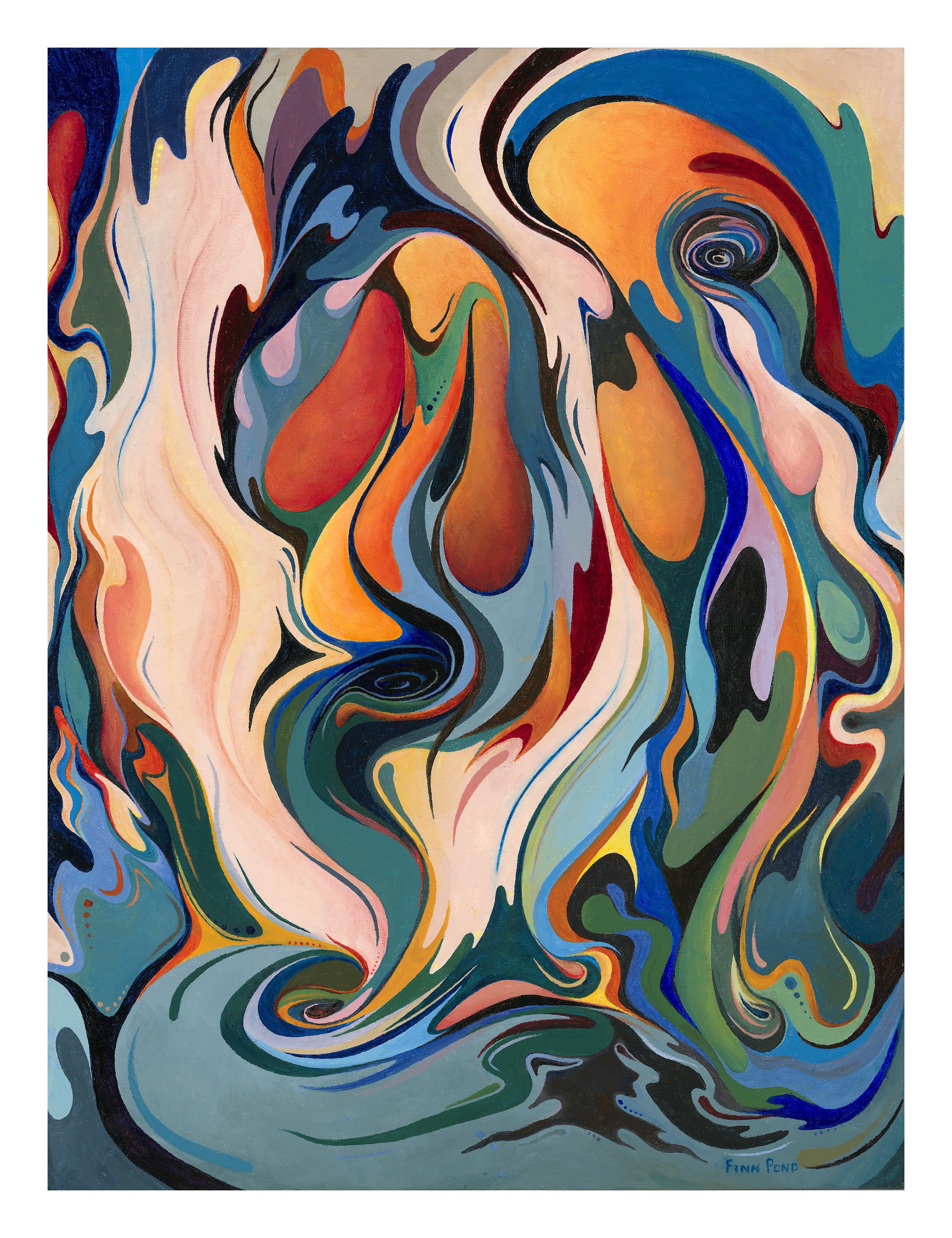
Negative Space & Balance
A painting’s composition can entice the viewer into and through the canvas in a satisfying and pleasing way to a focal point, or it can leave the viewer uneasily adrift in an incongruous and garbled assembly of parts, feeling that something is off. But what if one wants to make the viewer a bit apprehensive or uncomfortable?

Art or Decoration?
The distinction between fine art and commercial art or between an artisan or hobbyist often has little to do with technique mastery of the medium and more to do with creativity and imagination, with emotional impact and subject matter that resonates with the viewer—qualities that may outweigh technique and elevate our valuation of a work.

Picture at a Bar
The variety of art forms allow us to explore the human condition, to express our innermost thoughts and emotions, to explore our relationship to other people and to the world around us, to discover who we truly are. We begin as children drawing and coloring, interpreting on paper something about our world. Unconcerned about accuracy or realism, children simply express what they see and feel.

Beauty and Brokenness
The beauty of simple things often goes unseen, lost amid life’s distractions. Then, unexpectedly, something catches our attention and we pause long enough to appreciate the beauty and wisdom hidden in the world. A friend told me of a time when a small work of art did exactly that. A simple display of broken pieces of colored glass opened his eyes and heart. The radiance of colors emanating from jagged shards of glass moved him deeply.

Do you see what I see? Painting with color
How we see a visual work of art, what pleases us in a painting, and what we react to is affected by the way we see the world. The average person sees about a million different colors, but some people cannot see all those colors. I have a color-blind son, who is a fan of my work. This intrigues me because I know he sees my paintings differently than I do. Do my paintings have merit even with a different color palette or no color at all?

Touching Adam: What’s behind the paint?
Sometimes colors and shapes appear to be just colors and shapes, devoid of philosophical, religious, or political content, but that is not to say they were placed on the canvas haphazardly, without thought or intention.

Artistic expression and aesthetic experience
We became artists because the human brain is attracted to interesting patterns, novelty, beauty, and mystery, and this is the language of the arts. We became artists because works of art can affect us in profound ways—impacting us physiologically, emotionally, and spiritually.

My gendered art
Recently, two of my paintings were in a show at a local gallery. At the show’s opening, an acquaintance, an accomplished artist whom I respect, described my paintings as “very masculine.” My work is abstract—color and form and movement—so what sets it apart as masculine? Does the color palette, lines and shapes, depth and dimensionality, or the level of detail in a painting reflect femininity or masculinity?

What’s in a name?
Acts of creation and interpretation are part of a continual dance involving the artist and an audience—without naming a painting the audience is left to dance alone.

The art of imagination
Artists open our eyes to the world around us—objects, people, and nature—in new ways. They reveal parts of us that were previously unnoticed. They challenge us, entertain, and amuse us. They turn canvases into confessionals, revealing their inner selves—their emotions, fears and joys. There are no formulas or guidelines. There are no rules. Whatever an artist’s intention, the canvas does not judge, it is simply available to what the artist desires to do.

Inspiration and art
Inspiration comes to artists in various ways and is expressed in a multitude of forms. So, what inspires me? As with countless other artists, spending time in nature fills me with a sense of awe and exhilaration, as if all my senses have awakened.

Experiences shape our art
A man stared at the canvas for a while, then asked, “How long did it take to paint that?” My friend did not seem offended. He answered simply, “Forty-one years.”
